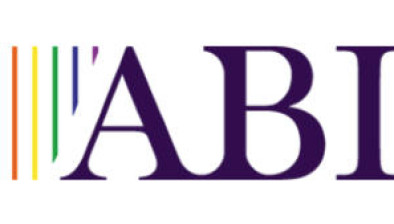UK budget: Business and financial sector responds
Yesterday, Chancellor Rishi Sunak delivered his first Budget for 2020/21 in the House of Commons.

Chancellor Rishi Sunak
The budget took into account the economic impact of the recent COVID outbreak and contained measures to mitigate any problems stemming from this.
A brief summary of the budget is as follows:
- Small firms will be able to access “business interruption” loans of up to £1.2m.
- A £3,000 cash grant per business will be made available for any firm which is currently eligible for small business rates relief
- Business rates will be abolished altogether for this year for retailers, in a tax cut worth over £1bn.
- The business rates discount will be extended to museums, art galleries, and theatres; caravan parks and gyms; small hotels and B&Bs; sports clubs, night clubs; club houses and guest houses.
- Business rates will be abolished altogether for this year for retailers, in a tax cut worth over £1bn. The discount will be extended to museums, art galleries, and theatres; caravan parks and gyms; small hotels and B&Bs; sports clubs, night clubs; club houses and guest houses.
- The tax threshold for National Insurance Contributions will rise from £8,632 to £9,500.
- Duties on spirits, beer, cider and wine will be frozen.
- Entrepreneurs’ Relief will be retained, but lifetime allowance will be reduced from £10m to £1m.
The Federation of Small Businesses (FSB) in Scotland welcomed the new package of help for smaller firms and the self-employed.

Andrew McRae
Andrew McRae, the Federation of Small Businesses’ (FSB) Scotland policy chair, said: “Smaller firms and the self-employed account for a million jobs north of the border. Therefore the UK Government and the Bank of England are right to pull out all the stops for smaller firms and the wider economy at this difficult moment.
“We cannot see good businesses go to the wall because of short-term cash flow difficulties caused by the coronavirus.
“By picking up the tab for the first 14 days of statutory sick pay, the UK Government is providing essential support for small employers. In addition, new small business funding schemes; a cut to interest rates; and new flexibility from HMRC should give many local enterprises much needed room to manoeuvre.
“Policymakers will need to keep these measures under review to ensure they deliver for firms at the sharp end.”

Huw Evans
Huw Evans, Association of British Insurers (ABI) director general, commented: “Millions of insurance customers who do the right thing and take out insurance will be pleased to see that the rate of IPT has not been raised in this Budget.
“The Government should consider reducing IPT, as it is a regressive tax that hits the poorest households hardest.”

Tracy Black
Tracy Black, CBI Scotland director, said: “Scotland needs sustained investment, from upgrading digital and transport infrastructure to bolstering our education and skills system, so the news of additional funding for Scotland is welcome. As we face challenges, from climate change to Covid19, we need to do whatever we can to deliver a resilient Scottish economy and boost productivity over the longer term - to make sure it remains a great place to live, work and do business.
“The Scottish Government should take note of the Chancellor’s commitment on business rate reliefs to mitigate the impact of the Covid19 and consider how Scottish businesses can be supported in the near-term.
However, on the issue of Income Tax, The Chartered Institute of Taxation’s (CIOT) analysis of the UK and Scottish Government’s income tax plans for 2020/21 has determined that, from April 6, Scottish taxpayers earning more than £27,243 will pay more in income tax compared to those on a similar income elsewhere in the UK.

Alexander Garden
Alexander Garden, chair of the Chartered Institute of Taxation’s Scottish technical committee, commented: “The chancellor’s income tax decisions don’t widen the income tax gap between Scotland and the rest of the UK any further, but they entrench the differences between the two regimes.
“It means that from April 6, Scottish taxpayers earning more than £27,243 will pay more in income tax compared to the rest of the UK, while Scottish income tax payers earning less than this will pay a lower amount of tax as a result of the Scottish Government’s income tax policy.
“Taxpayers across the UK will benefit from the chancellor’s planned reductions in National Insurance. But because income tax is only partially devolved – and National Insurance remains set at a UK level – the anomaly that sees some higher rate taxpayers pay a 53 per cent marginal rate of tax will continue.
“A standstill approach to income tax from the UK Government means that it is unlikely that there will be any need for MSPs to revisit the tax plans agreed last week. It provides a somewhat stable end to what has been a chaotic Budget process.”

Scott Henderson
Scott Henderson, CEO of ABGI UK, added: “In a budget which made it clear that the UK’s success in the global economy will be rooted in innovation and cutting-edge technology, the Chancellor’s plans to significantly increase public R&D investment to £22 billion per year by 2024-25 are most welcome. As Rishi Sunak has acknowledged, achieving the government’s ambitions on R&D will now require significant investment from the private sector. He has put in place solid support in today’s budget to make this happen.”
Dr Liz Cameron OBE
Dr Liz Cameron OBE, chief executive of the Scottish Chambers of Commerce, said: “We urgently need the Scottish Government to invest any extra funds into business support and boosting the economy, which faces huge challenges in the coming weeks and months. The Scottish Chamber Network is ready to work with Scottish Government on how these funds are best used in order to protect jobs and businesses.’’
“In the first instance, we call on the Scottish Government to support small businesses by immediately adapting the Small Business Bonus scheme to match the chancellor’s pledges of support for small companies in England. And to consider also suspending rates bills for retail, leisure and hospitality firms in Scotland as the UK Government have announced.’’
“Unless mitigated, the effect of a coronavirus pandemic in the coming weeks – coupled with ongoing uncertainty in other areas such as Brexit - risk heaping long term damage to the Scottish economy, leading to further underperformance in terms of GDP growth and productivity which our businesses and people can ill afford. Scotland needs investment in better transport infrastructure and swift reductions in the cost of doing business.’’

Karen Betts
Karen Betts, chief executive of the Scottish Whisky Association, added: “We welcome the fact that excise duty on spirits has been frozen for nearly three years and the Chancellor’s announcement today that excise duty will not rise further. However, our industry needs continued support, through the upcoming review of UK alcohol taxation and while our exports remain subject to US tariffs.
“The fact remains that duty on spirits in the UK is already very high and puts Scotch Whisky at a competitive disadvantage to wine, beer and cider, with £3 in every £4 spent on an average-price bottle of Scotch Whisky going to the government in tax. The review of alcohol taxation is an important opportunity to address that. The Treasury should move quickly to ensure that alcohol taxation is clearer for consumers, fairer for producers and that it supports important domestic products like Scotch Whisky.
“We are pleased that the Chancellor underlined the UK government’s commitment to resolving these damaging tariffs quickly, while also announcing measures to support Scotch Whisky in a challenging period – including through a green energy fund to support our industry’s leading work to decarbonise the energy we use and achieve net-zero, and new funds for export promotion.”










